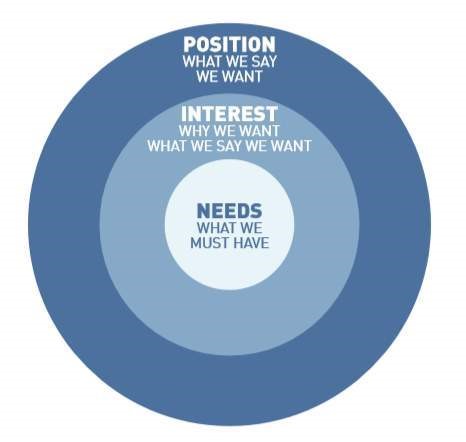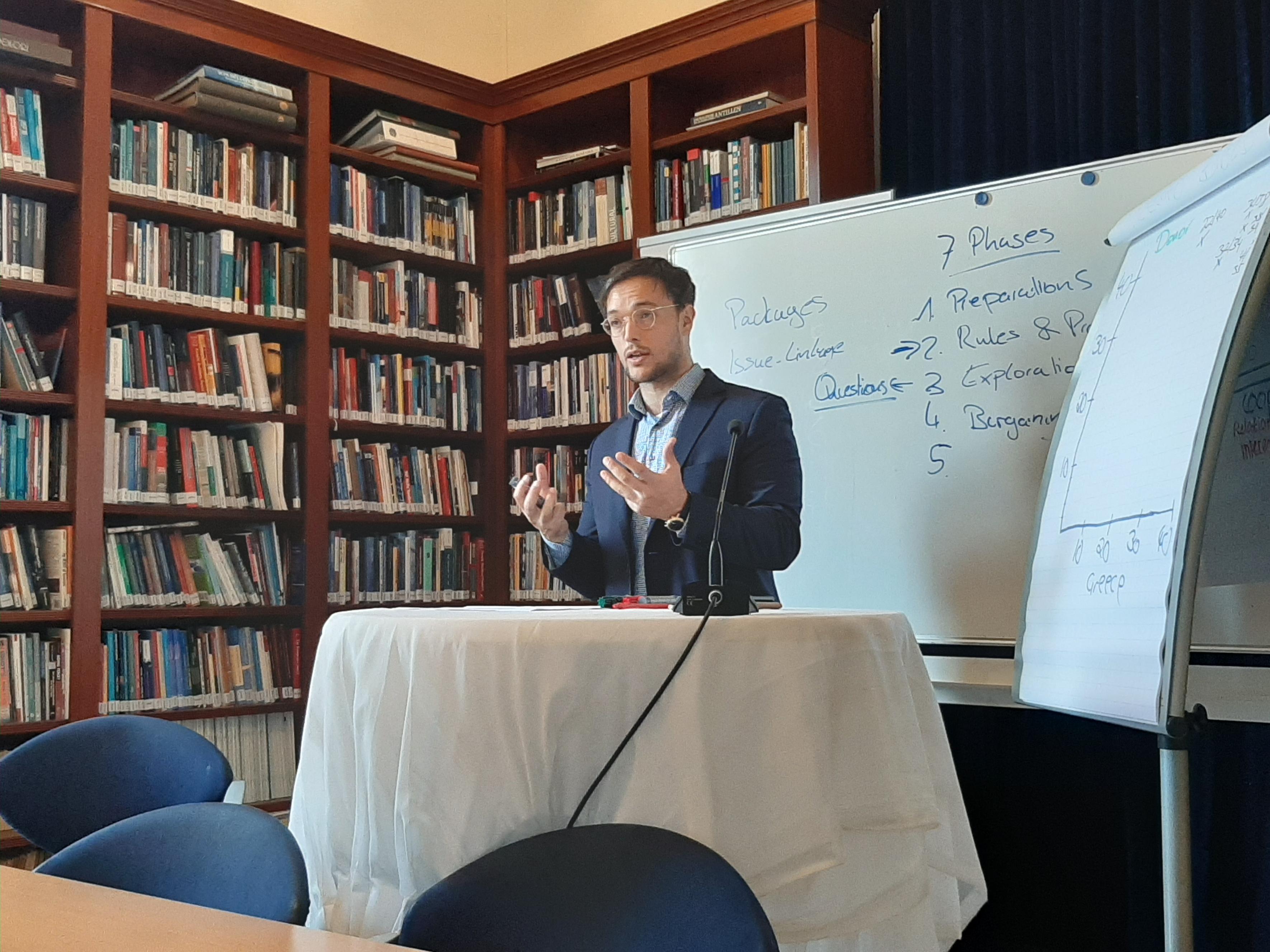News
“This training is so rich in many ways. There is great value of acquiring good negotiation skills as they can help build good long-term relationships with the other parties.”
In our negotiation skills training from 11-15 October 2021, we had the pleasure to welcome humanitarian aid workers who work in East Africa. During a five-day online training the participants dived deeper into the world of negotiation, meeting fellow humanitarians and sharing experiences.
Mr. Joel Ngba Nyanding (Country Director for Oxfam International in Burundi) and Mr. Peter Mumo (Information Systems Officer for UN OCHA in South Sudan) were both participants in this training. Today they will share with us their personal account of how they have experienced the training.

What was the highlight of the training for you?
Joel: “The PIN model and the negotiation strategies using the Thomas Killmann model: personally, I see all the course embedded in these two concepts.”
Peter: “I always looked forward to the debriefs after the negotiation exercises. I learnt so much from the trainers and fellow colleagues, better understanding the importance of following the phases of negotiations.”
What surprised you during the training?
Joel: “The consistency of the teachings presented in a simple, yet clear manner. In five days I learned and practiced more than I initially thought I would when beginning the course.”
Peter: “Culture plays a big role shaping negotiation styles, but can be changed with changing environments and positions.”
What did you personally gain from this training?
Joel: “For the past 16 years I have been working as a humanitarian in fragile and hostile contexts. Yet, I had never been trained in any kind of negotiation. Participating in this training helped me to acquire a practical raining that will be very useful for my present and future career in humanitarian context.”
Peter: “I learnt the value of being prepared before negotiations and the importance of setting strong ground rules during the negotiations.”
How do you think you will use the lessons learned after the training?
Joel: “As we were progressing with the course I realized that I was walking in the darkness as far as humanitarian negotiations were concerned. The lessons learned have revealed powerful tools that will be useful not only in the humanitarian setting (humanitarian access, dealing with donors, governments, etc.), but also in dealing with the staff and personal business. Strategies like competing, accommodating, avoiding, collaborating and compromising are used in almost all situations in personal or organizational setting. Before completing the training I was able to use one of the strategies to successfully negotiate a challenging matter.”
Peter: “I will always be better prepared when entering a negotiation, setting sound rules before the negotiations, and asking as many questions as possible to get good understanding of partners interests and needs if possible before bargaining.”

Why do you think fellow humanitarians should follow this negotiation skills training?
Joel: “There are various situations where a humanitarian will need to use negotiations skills. It can be to negotiate funding, humanitarian access, concessions with the government, etc. However, it is not common to find an organization providing such a training. The initiative of the Netherlands Institute of International Relations – Clingendael to teach negotiations skills, taught by asserted professionals is therefore a unique opportunity to grasp.”
Peter: “This training is so rich in many ways. There is great value of acquiring good negotiation skills as they can help build good long-term relationships with the other parties.”
What made you laugh during the training?
Joel: “I laughed on various occasions behind the scenes, in particular when I was making things hard to the counterpart and repeatedly refused to cooperate during the negotiations.”
Peter: “One time I was not sure If I had given out too much information to the other party only to realise during the debrief that it was way too much information.”
Upcoming trainings
Are you also interested in following a negotiation skills training for humanitarian aid workers? We recommend you to keep an eye out on our website where new trainings will be announced. We would like to thank Joel and Peter for sharing their personal account of the training, and we wish them lots of luck in their humanitarian work and in future negotiations.



